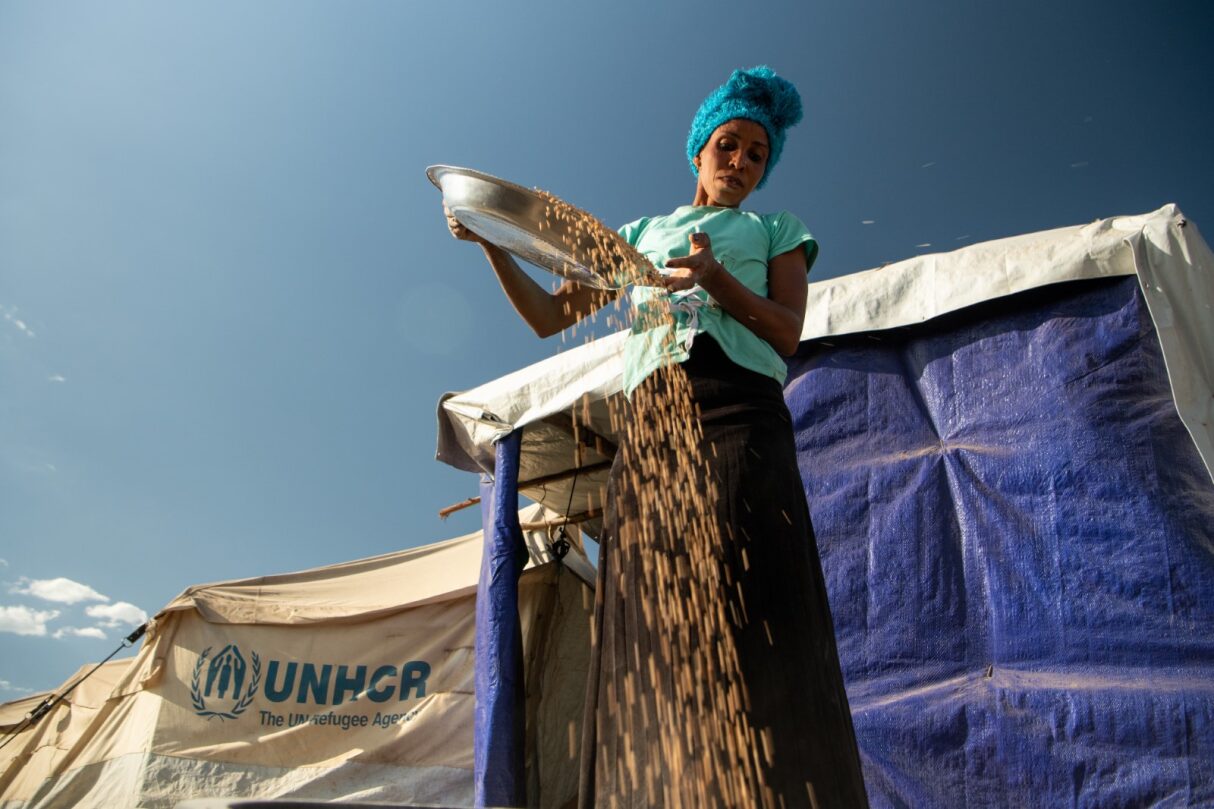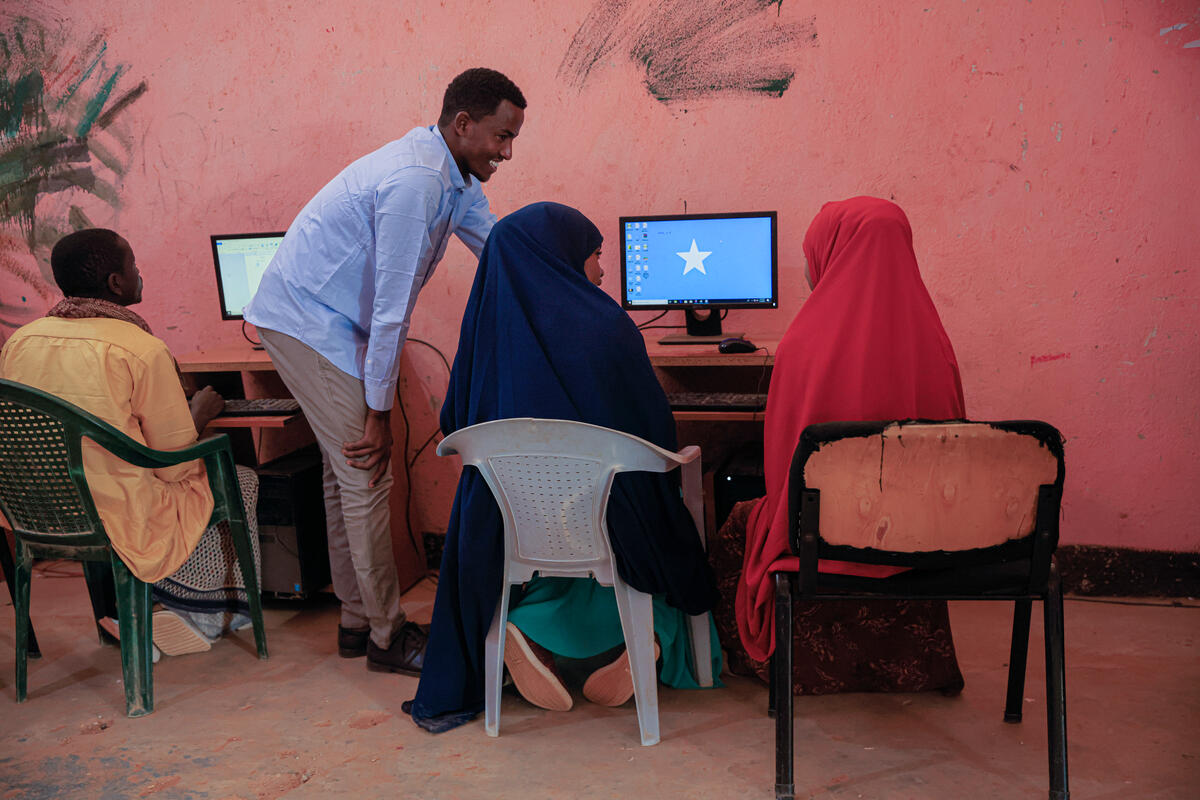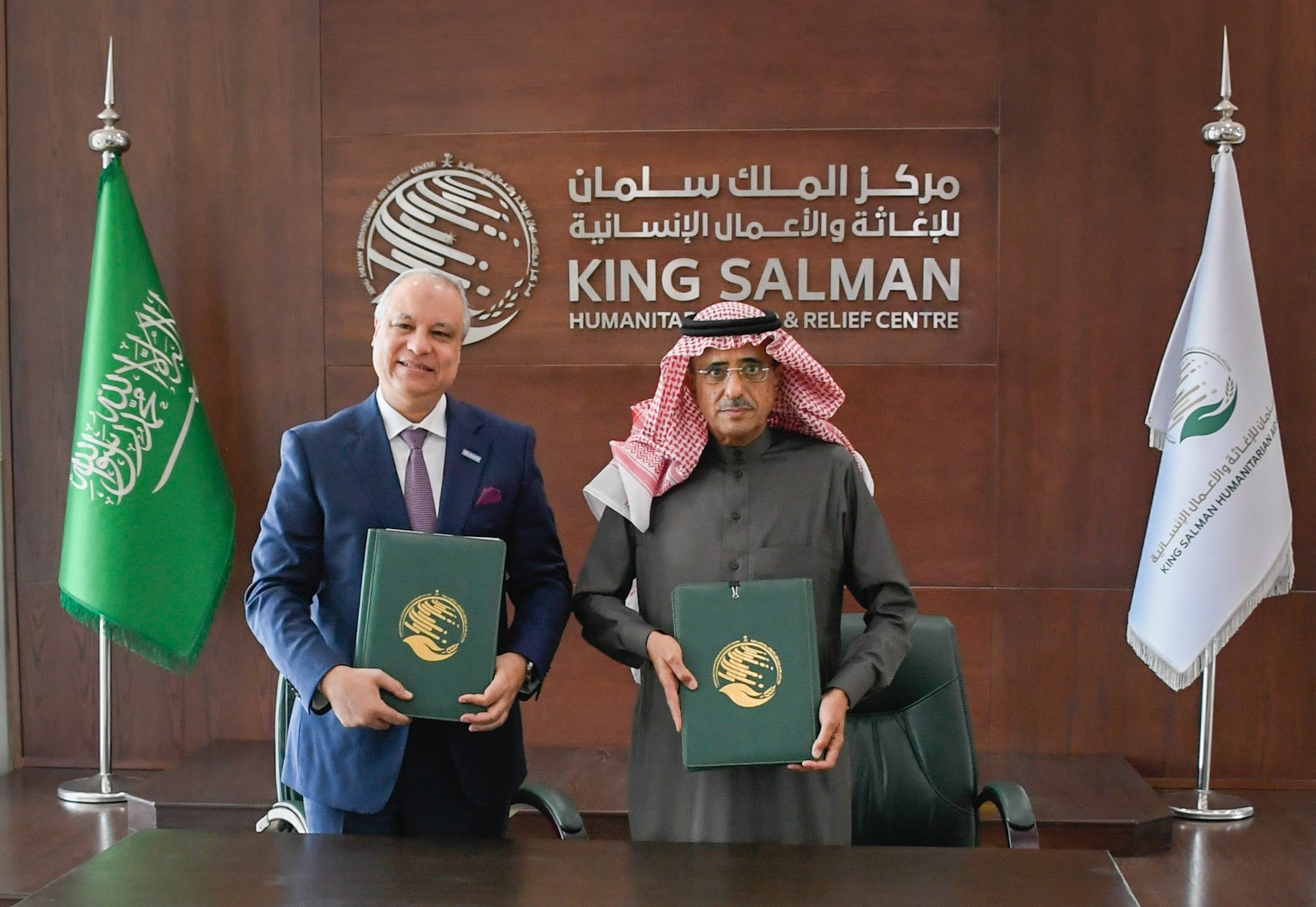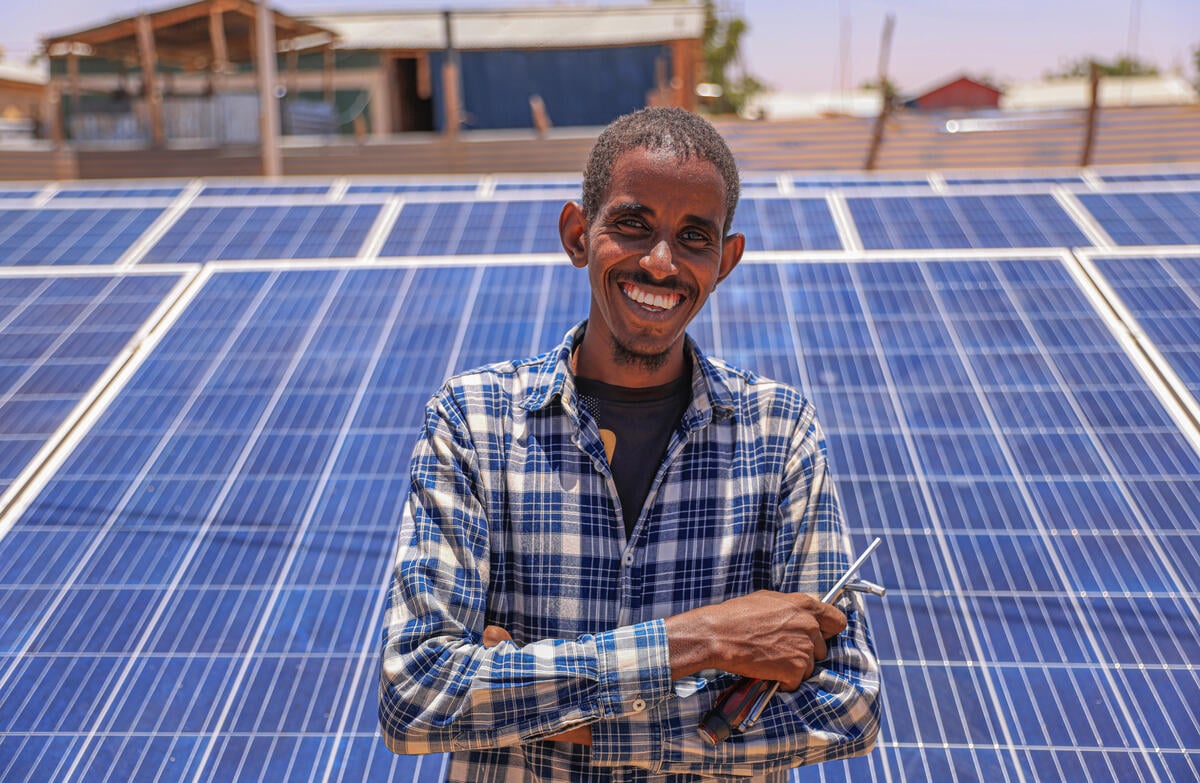Ethiopian refugees in Sudan raise awareness on risks of trafficking and smuggling for people on the move
Ethiopian refugees in Sudan raise awareness on risks of trafficking and smuggling for people on the move

It’s 8 o’clock in the morning and Yared, a 24-year-old Ethiopian refugee, is about to begin his rounds in Um Rakuba camp, in eastern Sudan. Yared is one of 20 volunteers from Telling the Real Story, an initiative by UNHCR, the UN Refugee Agency, to raise refugees’ awareness about the risks of trafficking and smuggling for those considering moving on to other countries.
Home to close to 20,000 refugees, Um Rakuba is an easy target for smugglers and traffickers, who often prey on young refugees desperate to escape their precarious existence in the camp. Over 30 percent of refugees in the camp are under the age of 18.
Every day, Yared and the other volunteers carry out door-to-door visits and hold group discussions in homes, coffee houses and other meeting places across the camp.
A final year chemical engineering student, Yared was looking forward to graduating from university when conflict broke out in Ethiopia’s Tigray Region in November 2020.
He fled to eastern Sudan with his mother and father, first arriving in Hamdayet Transit Centre before being relocated to Um Rakuba camp.
“It isn’t always easy changing people’s minds, but we never give up.”
Tired of sitting idle and driven by a strong sense of purpose, Yared decided to volunteer with ‘Telling the Real Story’ after some of his peers fell prey to smugglers who lured them with promises of better prospects abroad.
“I have many friends who left the camp in search of a better life. Most were bored and frustrated so they decided to try their luck,” he says.
He speaks to young people who tried to make the journey to Europe. They often have harrowing stories of abuse. Survivors describe regular beatings, forced labour and sexual abuse. For many, the memories are deeply traumatic.
“Everyone wants to go to Europe because they believe their life will change for the better”, he says. “They don’t always know about the risks and even if they do, it’s ones they’re willing to take because of what they see on TV, movies and social media.”
Yared and the other volunteers share as much information as possible about the dangers of smuggling and human trafficking, while also encouraging young refugees to consider other options before taking a decision to move on.
“It isn’t always easy changing people’s minds,” he says, “but we never give up.”
‘Telling the Real Story’ is just one of the ways that UNHCR’s operation in Sudan is trying to combat these risky movements and scale up the humanitarian and development assistance provided in the camps with the support of the Government of Sudan, UN Agencies and other national and international partners.
“Just because you’re a refugee today, doesn’t mean you’ll be a refugee forever.”
“We’ve taken a couple of measures to counter the false narratives spread by smugglers and the feedback has been positive,” says Silas Egesa, UNHCR’s Associate Project Officer in Gedaref. “These include regular awareness raising sessions in the camps, border monitoring visits with authorities and capacity building workshops on counter-trafficking for police and security counterparts.”
Even as Yared continues his work with ‘Telling the Real Story’, he remains hopeful that he will return tto Ethiopia to complete his studies. “I’ve always been an optimist,” he says, smiling.
“Just because you’re a refugee today, doesn’t mean you’ll be a refugee forever.”
*not his real name









